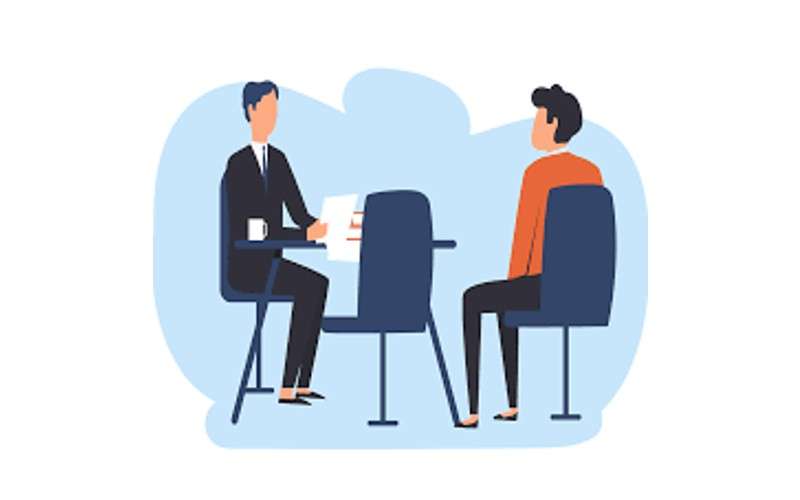
Interviews play a pivotal role in the process of recruitment and selection for companies across industries. Whether you are a recent graduate entering the job market or an experienced professional seeking a career change, understanding and mastering interview techniques is essential for success. This article aims to provide a comprehensive guide to various interview techniques, strategies, and tips that can help you navigate the intricate landscape of job interviews.
Introduction to Interview Techniques
Interviews serve as a bridge between an employer's need for a qualified candidate and a candidate's aspiration for a fulfilling career. They are not just a one-way assessment but rather an interactive dialogue where both parties evaluate each other's compatibility. Properly conducted interviews offer insights beyond the qualifications listed on a resume, enabling employers to gauge a candidate's personality, communication skills, problem-solving abilities, and cultural fit within the organization.
Types of Interviews
Before delving into interview techniques, it's important to understand the different types of interviews that employers may use:
Preparing for the Interview
The foundation for a successful interview lies in thorough preparation. Here are some steps to consider:
1. Research the Company
Understand the company's history, mission, products or services, recent news, and industry trends. This knowledge not only demonstrates your interest but also equips you to tailor your responses to align with the company's values and goals.
2. Know the Role
Analyze the job description to comprehend the responsibilities and qualifications required. Be ready to discuss how your skills and experiences make you a suitable fit for the role.
3. Practice Common Questions
While you can't predict every question, practicing common interview questions can boost your confidence and help you articulate your responses clearly. Questions may include ""Tell me about yourself,"" ""Why do you want to work here?"" and ""What is your greatest strength/weakness?""
4. Prepare Your Own Questions
At the end of most interviews, you'll have the chance to ask questions. Prepare thoughtful questions about the company culture, team dynamics, growth opportunities, and expectations for the role.
5. Rehearse with Mock Interviews
Conduct mock interviews with a friend, family member, or career coach. This simulates the interview experience and provides an opportunity to receive feedback on your responses, body language, and overall demeanor.
Mastering the Interview Techniques
A successful interview is a combination of effective communication, presentation, and relationship-building. Here are techniques to help you excel during the interview:
1. Strong Introduction
The first impression matters. Begin with a firm handshake, maintain good posture, and offer a genuine smile. When asked to introduce yourself, provide a concise overview of your professional background, highlighting relevant experiences and skills.
2. STAR Method for Behavioral Questions
When answering behavioral questions (e.g., ""Tell me about a time when you faced a challenge""), use the STAR method:
- **Situation:** Describe the context.
- **Task:** Explain the task or problem.
- **Action:** Outline the actions you took.
- **Result:** Share the outcomes and what you learned.
Using this method provides a structured and comprehensive response.
3. Active Listening
Listen attentively to the interviewer's questions. If you're unsure about a question, it's acceptable to ask for clarification. Respond thoughtfully, addressing the specific points raised in the question.
4. Showcase Soft Skills
Soft skills like teamwork, leadership, adaptability, and communication are highly valued by employers. Provide examples that demonstrate these skills in action.
5. Body Language
Nonverbal cues are powerful indicators of confidence and engagement. Maintain eye contact, sit up straight, and avoid fidgeting. These actions convey your enthusiasm and professionalism.
6. Tailor Your Responses
Customize your answers to show how your experiences and skills align with the specific requirements of the role. This demonstrates your genuine interest in the position.
7. Handle Curveball Questions
Not all questions will be expected or easy to answer. Stay composed, and take a moment to think before responding. It's okay to acknowledge that a question is challenging before providing your answer.
8. Discuss Achievements
Back up your claims with quantifiable achievements. If you increased sales by a certain percentage or led a successful project, share these accomplishments as evidence of your capabilities.
9. Cultural Fit
Companies value candidates who align with their culture. Showcase your understanding of the company's values and how you can contribute to the team's dynamics.
Closing the Interview
As the interview draws to a close, there are important steps to consider:
1. Express Enthusiasm
Reiterate your interest in the role and the company. A simple statement like, ""I'm excited about the opportunity to contribute to the team and company"" can leave a positive impression.
2. Inquire About Next Steps
Ask about the timeline for the hiring process and when you can expect to hear back. This demonstrates your eagerness and helps manage your expectations.
3. Thank the Interviewer
Express gratitude for the opportunity to interview. A thank-you email or note after the interview is a courteous gesture that can set you apart from other candidates.
Conclusion
Mastering interview techniques requires a combination of research, preparation, communication skills, and adaptability. By understanding the different types of interviews, preparing thoroughly, and employing effective strategies during the interview, you can significantly enhance your chances of success. Remember that interviews are not only about proving your qualifications but also about showcasing your personality and potential as a valuable member of the team. With dedication and practice, you can navigate the interview process with confidence and secure the job opportunity you desire.